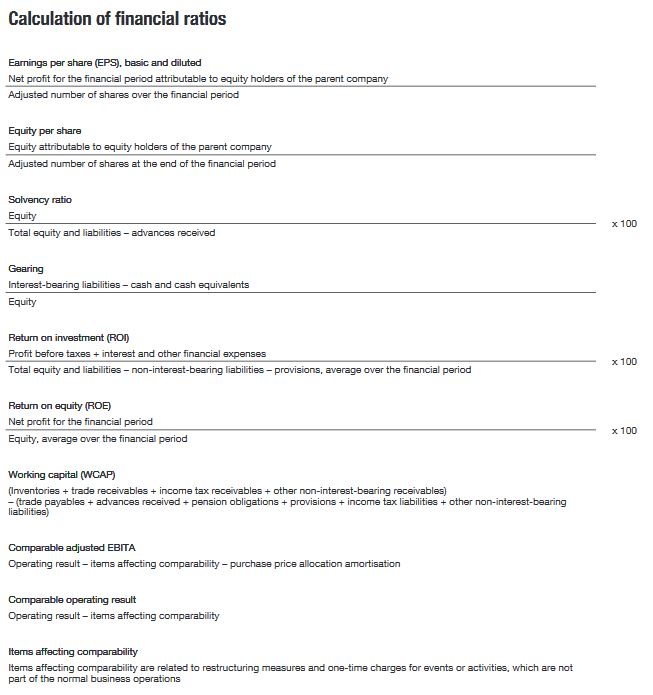Содержание
According to the matching principle, the financial data recorded in a fiscal period is as complete as possible and should not be spread across multiple accounting periods. Five key concepts underlie accounting procedures and the creation of financial statements, even though there are many rules for accountants. The accrual principle, matching principle, historic cost principle, conservative principle, and the principle of substance over form are those.
She earned a bachelor of science in finance and accounting from New York University. Matos began her career at Ernst & Young, where she audited a diverse set of companies, primarily in consumer products and media and entertainment. She has worked in private industry as an accountant for law firms and for ITOCHU Corporation, an international conglomerate that manages over 20 subsidiaries and affiliates. Matos stays up to date on changes in the accounting industry through educational courses.

Harold Averkamp has worked as a university accounting instructor, accountant, and consultant for more than 25 years. 52- or 53-week fiscal year such as the 52 or 53 weeks ending on the last Saturday of January, etc. Debit depreciation expense for $16,875 and credit accumulated depreciation-equipment for $16,875. Debit accumulated depreciation -equipment for $16,875 and credit depreciation expense for $16,875. Debit depreciation expense for $18,625 and credit accumulated depreciation-equipment for $18,625.
The header will identify the last date of the accounting period, for example, “as of June 30, 20XX.” It is also common for U.S. retailers to have accounting periods that end on a Saturday. The annual accounting period for these businesses may be the 52- or 53-week fiscal years ending on the Saturday closest to February 1 or any other date. The retailers’ quarterly accounting periods will be the 13-week periods, and the monthly accounting periods will be a 4- or 5-week time period. The accounting period of one year, other than the calendar, is considered as the fiscal year. For instance, a company XYZ prepares its financial statement for the year that starts on 1st April 2019, and ends on 31st March 2020.
What is the Rule 407 letter? – Definition, Explanation, Example, and More
In the 4–4–5 calendar, a particular year is divided into 4 quarters. With each quarter having thirteen weeks that are grouped into one 5-week month and the other two 4-week months. Accruals are revenues earned or expenses incurred which impact a company’s net income, although cash has not yet exchanged hands. Investopedia requires writers to use primary sources to support their work.
Accordingly, any expenses incurred by the owner for himself or his family from business will be considered as expenses and it will be represented as drawings. He purchased goods for Rs 50,000, furniture for Rs. 40,000, and plant and machinery for Rs. 10,000 and Rs 2000 remained in hand. These are the assets of the business and not of the business owner. According to the business entity concept, Rs.1,00,000 will be assumed by a business as capital i.e. a liability of the business towards the owner of the business. It aims to understand the business rules and regulations that are required to be followed by all types of business entities, and hence simplifying the detailed and comparable financial information.

Various financial institutions along with investors are interested in knowing the company’s performance. The end of the fiscal year would move one day earlier on the calendar each year until it would otherwise reach the date four days before the end of the month . At that point the first Saturday in the following month becomes the date closest to the end of August and it resets to that date and the fiscal year has 53 weeks instead of 52. In this example the fiscal years ending in 2011 and 2016 have 53 weeks.
Javatpoint Services
These elements are tracked and recorded in documents including balance sheets, income statements, and cash flow statements. What is meant by consistency when discussing financial accounting information? Basic accounting concept that once an accounting method is adopted, it should be followed consistently from one accounting period to the next. If, for any reason, the accounting method is changed, a full disclosure of the change and an explanation of its effects on the items of the financial statements must be given in the accompanying notes . One of the duties of an auditor is to make sure the consistency principle is being followed because, otherwise, any change might make interpretation of the financial data a futile exercise. When Accountants prepare financial statements, they assume that the life of the business can be divided into time periods.
- The term realization concept states that revenue earned from any business transaction should be included in the accounting records only when it is realized.
- Two distinct accounts must be kept if the tax period is different from the financial year.
- Financial StatementsFinancial statements are written reports prepared by a company’s management to present the company’s financial affairs over a given period .
- Its quarterly accounting periods would be July 1 through September 30, etc.
Current liabilities are liabilities due within one year of a financial statement’s date. Long-term liabilities have due dates of more than one year.The term also appears in a type of business structure known as a limited liability company . LLC structures allow business owners to separate their personal finances from the company’s finances.
Top 6 Richest Accountants In The World
It implies that the fixed assets like plant and machinery, building, furniture, etc are recorded at their purchase price. For example, a machine was purchased by ABC Limited for Rs.10,00,000, for manufacturing bottles. An amount of Rs.2,000 was spent on transporting the machine to the factory site. Hence, the total amount at which the machine will be recorded in the books of accounts would be the total of all these items i.e. Every year, from the first of January to the last day of June, a company’s transactions are recorded, and the company’s books of accounts are closed. The accounting period, in this case, is a half-year, i.e., from the first of January to the last day of June, and the following period will be from the first of July to the last day of December.

Purchase should be supported by purchase bills, sale with sale bills, cash payment of expenditure with cash memos, and payment to creditors with cash receipts and bank statements. Similarly, stock should be checked by physical verification and the value of it should be verified with purchase bills. In the absence of these, the accounting result will not be trustworthy, chances of manipulation in accounting records will be high, and no one will be able to rely on such financial statements. It means, the cash received in a particular accounting period and the expenses paid cash in the same accounting period is the basis of their accounting. For them, the income of their firm depends upon the collection of revenue in cash.
This concept is the backbone of the double-entry bookkeeping system. It states that every transaction has two aspects, debit and credit. The entity has to record every transaction and give effect to both debit and credit elements. Because of this, the challenge of calculating income for an accounting period is the most challenging in accounting.
Main accounting concepts
In case of situations such as a merger or an acquisition, if an organization wants to change its accounting period, such a change is difficult to be done. This concept helps in forecasting the future prospects of a business based on the reports. Practically, it will be correct to say that the entity will record the realized value of the asset once the asset has been sold or disposed of off, as the case may be.
An enrolled agent is a finance professional legally permitted to represent people and businesses in Internal Revenue Service encounters. EAs must earn licensure from the IRS by passing a three-part exam or accruing direct experience as an IRS employee. We also explain relevant etymologies or histories of some words and include resources further exploring accounting terminology. It was developed for students and entrepreneurs to build their familiarity with accounting vocabulary. Management discussion and analysis (MD&A) is a section of a company’s annual report in which management discusses numerous aspects of the company, both past and present.
https://1investing.in/, investors, shareholders, financiers, government, and regulatory agencies rely on financial reports for decision-making. The periodicity concept states that the entity or the business needs to carry out the accounting for a definite period, usually the financial year. The period for drawing financial statements can vary from monthly to quarterly to annually. It helps in identifying any changes occurring over different periods.
The term “accounting period” refers to the predetermined time frame during which all accounting transactions are documented, and financial statements are collected to be presented to investors. In this time frame, a business prepares its own financial statements and reports the financial performance and position of its business to the external or the interested stakeholders. An important accounting rule used in the accrual method of accounting is the revenue recognition principle. The revenue recognition principle states that revenue should be recognized when the money is earned, not when the cash changes hands. For example, a company may earn revenue prior to receiving cash if it allows customers to make purchases on credit. At the time of service or upon transferring a good to the customer, the company will recognize both revenue and an accounts receivable.
2022 Sports Betting & DFS Tax Reporting – Rotogrinders
2022 Sports Betting & DFS Tax Reporting.
Posted: Thu, 02 Mar 2023 16:20:11 GMT [source]
One well-known alternative is International Financial Reporting Standards .In the United States, privately held companies are not required to follow GAAP, but many do. However, publicly traded companies whose securities fall under SEC regulations must use GAAP standards. The SEC has stated that it may adopt IFRS best practices to replace GAAP in the future.
Cash Basis Accounting
The Internal meaning of accounting period concept Service allows taxpayers to record taxes by calendar year or fiscal year. A calendar year or economic year is an accounting length, a hard and fast length in which accounting sports are performed, collected, and analysed. If the tax period is different, two separate accounts will be required to be maintained. The concept is useful for investors as they can refer to the trends of the financial results over several intervals. Bad debt expense is an expense that a business incurs once the repayment of credit previously extended to a customer is estimated to be uncollectible. A fiscal year, on the other hand, can consist of any annual period selected by a company.
